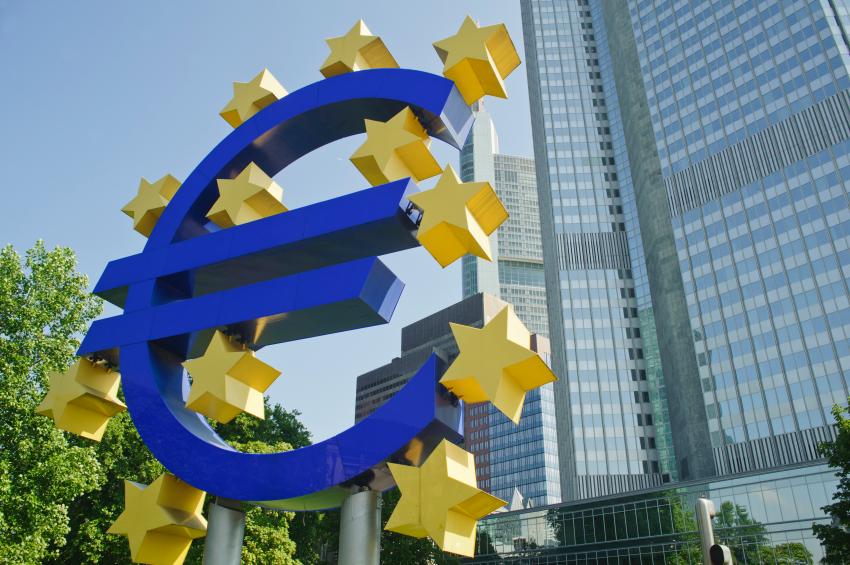
“If you were to ask me about my national identity, I’d have a difficult time responding. My mother is Spanish. My father is German. My wife is Swedish. Sweden is the country where I grew up. Now I’m living in the U.K. To add to my confusion, I’m also supposed to be a European. And to make it even more of a muddle, within my nuclear family we have Roman Catholics, Lutherans, Muslims, Jews, and even Buddhists. When people ask me questions about my background, I find it difficult to position myself and articulate a clear narrative of who I am and what I stand for. I should revel and flourish in the cultural richness of diverse identities but instead I feel empty. What’s going on?”
The protagonist in this soliloquy is in the midst of what we call a national identity crisis. In not having a specific national or regional status he seems to be struggling with what he perceives as a nebulous European identity.
Negotiating several identities at once, whether it’s national, regional, linguistic or religious, requires their redefinition as well as a reconsideration and reintegration of certain concepts, such as the ideas of universality, nationality and citizenship.
The first essential question raised in these situations is to determine what we mean by identity? The term identity can be very confusing. It is a personal yet general concept existing on multiple levels and can include one’s culture, gender, professional role, family status and religious affiliation.
Whichever way we define it, identity takes shape through social action. It is based on both differences (what I am not) and belonging (what I am) in a relational context. Through this difference or belonging we are able to position ourselves and get a better idea of who we are.
Because identity is contextual and relational in nature, we rarely have only one identity; in fact, we may have many. And these may exist in varying degrees of tension with one another, as our protagonist’s narrative illustrates.
Our protagonist may also be a victim of the “European experiment”, as nation states become less clearly defined and identities diluted. While the opening up of cultures can be an enriching experience, it can also result in a great amount of confusion.
However, individuals possessing a strong sense of inner security can use this multi-cultural heritage to their advantage. Having a European identity can make them better world citizens and more effective operating in a global environment fulfilling the aspirations of the founding fathers of the European Community.
A common history
The notion of a European identity has existed for more than 3000 years and can be traced from a common Judeo-Christian background and the influence of the ancient Greeks and Romans. Europeans collectively underwent dramatic cultural, scientific and philosophical changes during the Renaissance in the 15th century and in the Enlightenment three centuries later. In most cases they experienced the industrial revolution at approximately the same time in their histories while a number of European powers dominated the world with their colonial expansion, from the 16th until the mid-20th century, leaving a common legacy in many countries.
Challenges for the “European identity”
Despite these similarities of a single evolving history and identity only a small percentage of people in Europe will say that they feel first and foremost “European”. The greatest challenge to a more unified existence is the lack of a common language. And then there are the important religious differences which affect values, beliefs, attitudes, and behaviour, all of which have an impact on the way people work and relate to one another.
When identity is not clear and insecurities abound, xenophobic feelings start to come to the fore. The Euro crisis has added fuel to the fire of these sentiments. But in spite of such regressive, even paranoid-like behaviour, the social, political, cultural, and geographical perceptions that Europeans have of each other have radically changed (I think for the better) over the last decades.
National borders have become less important within the territory covered by the Schengen Treaty and the present-day EU has become the single most important institutional structure. In spite of its drawbacks, the euro currency can in many ways be seen as another major milestone in this process of the “Europeanisation of Europe”.
Anchors of European identity
Indeed, the shared heritage of the people in Europe has contributed to a number of very distinguished features. For example, the value placed on the social responsibility of the state. Quality of life also ranks high on European’s list of priorities, as do environmental concerns and valuing education as a fundamental human right.
Maintaining peace has become a critical issue, as have citizens' rights (to protest, to dissent, to achieve justice, and to live without fear, censorship, poverty, hatred and prejudice). Europeans strongly support gender equality and respect for other ethnic groups and, in spite of the challenge of finding consensus among so many nations, in general they believe that democracy is the least bad form of government.
There has been a constant exchange of cultural experiences through the European movie and music industry and other forms of art and education; and a massive convergence of patterns of consumptions and lifestyles.
European vs U.S. leadership
These developmental streams have contributed to an evolving model of European leadership (quite distinct from the American one) that can be highly effective in our global world.
Some of these distinct European patterns contribute to a more sustainable form of leadership. For example, while the American style of leadership includes a bias toward short-term gains, an inordinate focus on capital markets and finance, and an over-simplistic understanding of the concept of shareholder value, Europe’s leadership orientation can be described as a more responsible kind of capitalism held in check by the institutions of civil society. Compared to the U.S., social responsibility is much more at the forefront.
The European leadership model is also more rooted in a long-term mentality. Granted, the European consensus-orientated leadership style comes at the price of speed, but once everyone is involved and on board in the decision-making process, the execution of decisions becomes increasingly faster.
Furthermore, Europeans, compared to the U.S., give greater importance to a balanced perspective on the past, present and future. The more historical orientation of Europeans contributes to a greater concern about continuity, making them possibly less equipped to deal with transformational change.
A work in progress
Being cognisant of what it means to be a European, our protagonist should be aware of the fact that having such a rich heritage is a great blessing, especially in a world that has become truly international, and where organisations themselves have become increasingly global. While the making of a European identity can produce uncertainty, he should realise that a national and a European identity can co-exist. Confusion can be alleviated, by changing orientation and accepting the contradictions. He should take advantage of the fact that the continent’s identity is in a formative state and a work-in-progress towards becoming a true European.
Manfred Kets De Vries is the Distinguished Professor of Leadership Development & Organisational Change at INSEAD and The Raoul de Vitry d'Avaucourt Chaired Professor of Leadership Development, Emeritus. He is the Founder of INSEAD's Global Leadership Centre and the Programme Director of The Challenge of Leadership, one of INSEAD’s Top Executive Development Programmes.
Follow INSEAD Knowledge on Twitter and Facebook-
View Comments
(1)
-
Leave a Comment





Anonymous User
27/05/2015, 07.46 pm
psycho-analysis at a most elementary level !